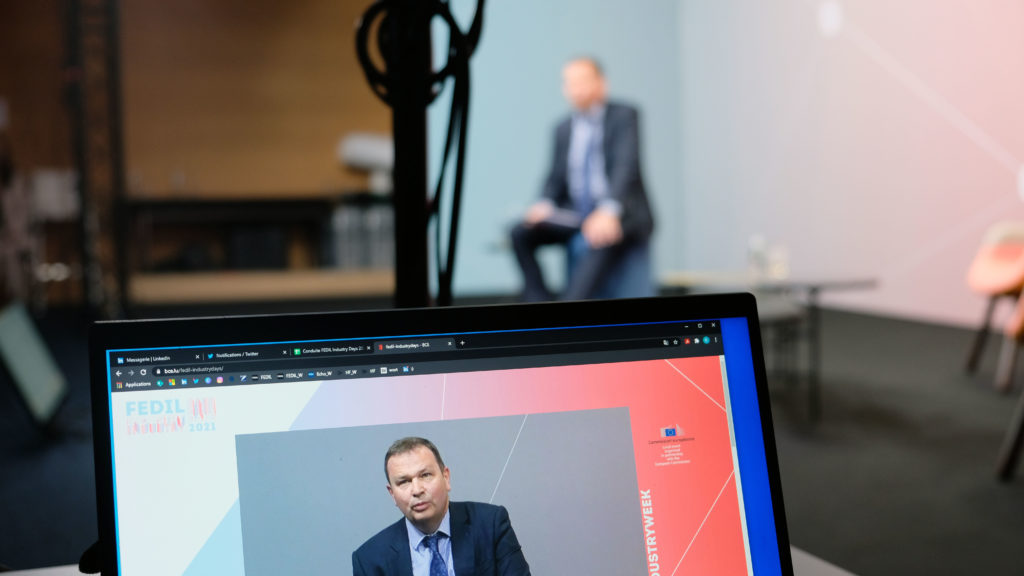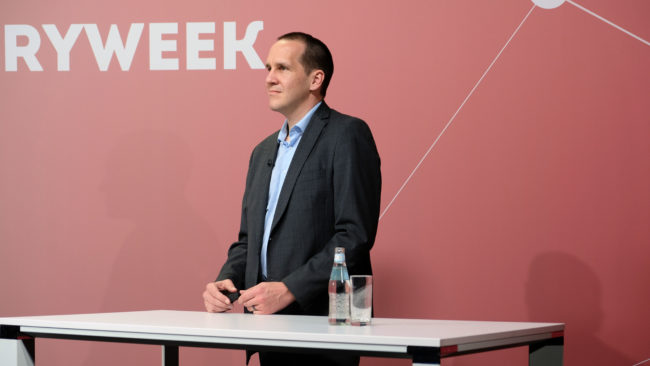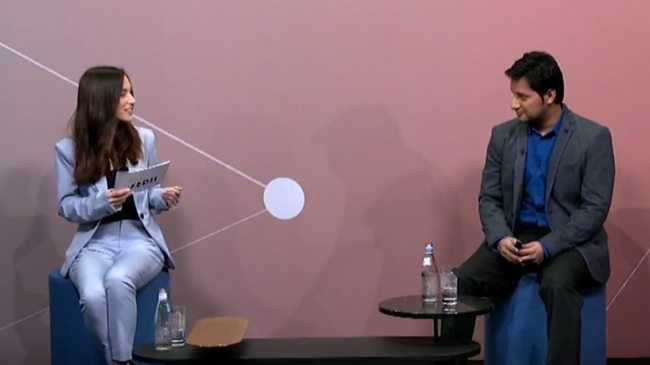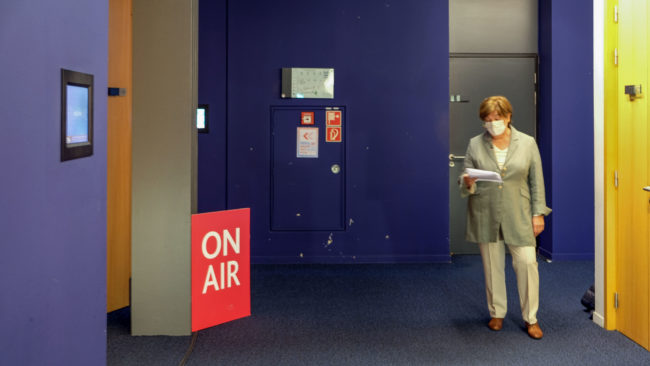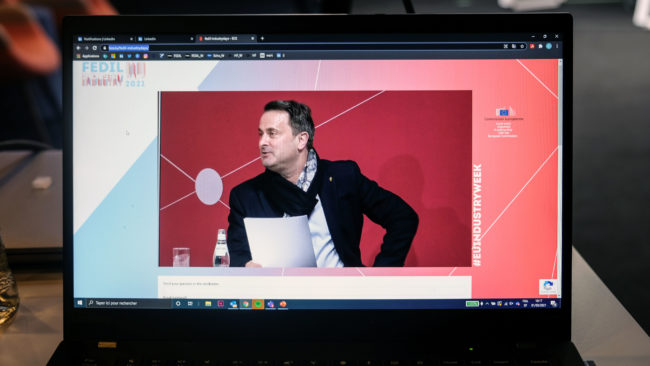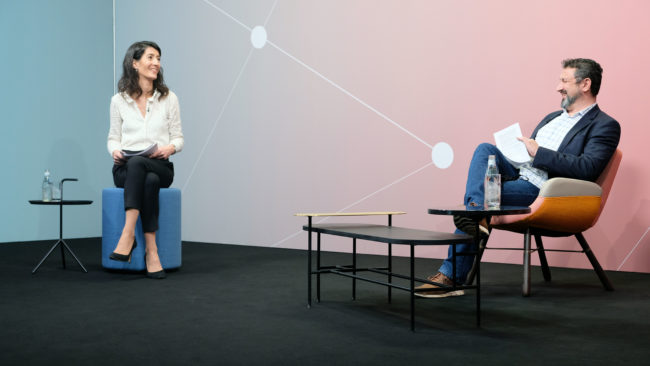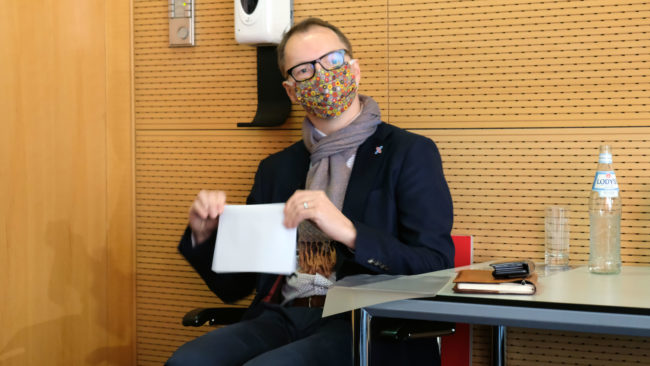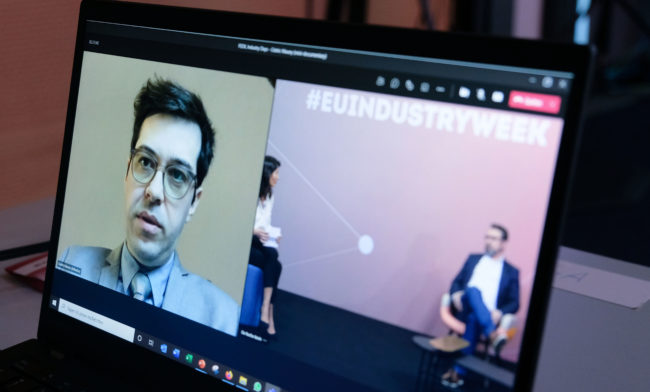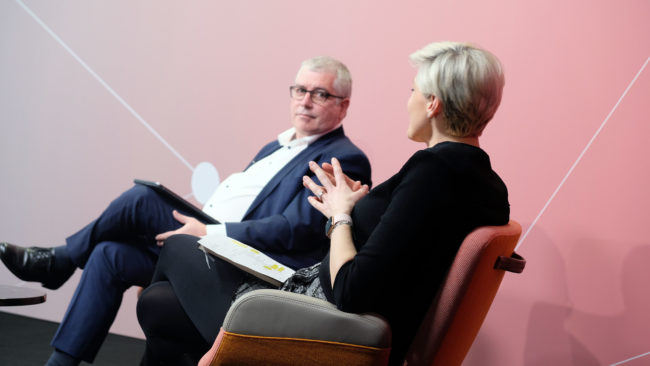The digital transformation and the energy transition are key elements of the European Union’s (EU) industrial strategy and key pillars of the EU’s recovery plan, « Next Generation EU » 1.
FEDIL supports green growth, the fight against climate change, and the goal of reaching climate neutrality by mid-century. FEDIL also believes in making the digital transition a real success, accompanying all European citizens and all European companies in the race to the top. We are convinced that our success lies in a Europe that focuses on a strong internal market without barriers, rather than on competing national interests.
Hence, industry in Europe faces important challenges. We need to overcome the pandemic, recover from its considerable impacts on our economy, and emerge stronger, more united, and more prosperous. At FEDIL, we conceive this…
…by strengthening our Single Market and the resilience of international value chains,
…by boosting investments in R&I and the potential of the EU’s data economy,
…by constantly adapting our cybersecurity,
…not least, by developing digital and STEM skills in the EU.
Therefore, FEDIL asked whether the current policies and frameworks remain relevant to this end? And whether they are sufficient for the EU to stay competitive on the international level? Do they create new opportunities for our industry?
On 1 and 2 March, FEDIL Industry Days highlighted the need for a regular update of the EU’s industrial strategy and choose to focus the first edition on shaping Europe’s digital future. Since 2017, the European Commission organizes the EU Industry Days as an opportunity for dialogue and an open debate on industrial competitiveness and the strategic approach that should underlie the Commission’s work. The 5th edition of this annual flagship event took place on 23 to 26 February and, together with various local events, served as the main platform to discuss industrial challenges but also to develop policy responses together with many stakeholders.
Indeed, in 2021, FEDIL had the honour to organize a « local event » under the umbrella of the #EUIndustryWeek and took the chance to provide – together with over 1000 participants including remarkable guest speakers – relevant input for the future of the EU’s industry.
We offered high-level speeches and panel discussions as well as various presentations: on data literacy, knowledge management and the space sector; on the PwC AI Laboratory Luxembourg; as well as on the national cybersecurity strategy IV.
To open the first Day of FEDIL Industry Days 2021, we invited our Chairwoman, Michèle Detaille and the Prime Minister of Luxembourg, Xavier Bettel, to react to CEO statements about digital lessons to be drawn from the COVID-19 crisis:
Teleworking, infrastructures, connectivity and cybersecurity, to which our Chairwoman added the digitization of administrative procedures (e-government), were mentioned as the main factors of the digitization accelerated by the pandemic.
To start with, the Prime Minister recalled that digitalization is a horizontal subject, allowing us to adapt to unavoidable changes of our economy and society due to robotics, AI and other key enabling technologies.
In a debate on whether the increased use of telework will alter our understanding of labour, the Prime Minister prompted how it helped to maintain a certain level of continuity of economic and public activities. However, he also stressed the importance of physical presence at a workplace, for social interaction and the corporate culture. Mrs Detaille confirmed these concerns and pointed out that, for certain industries and sectors, telework could never be an option as physical presence is still necessary to carry out their missions. Both agreed that telework is part of the solution and part of the future, but that it cannot replace physical presence entirely, and should not allow for a whole delocalization of our workforce.
Replying to a question on technological sovereignty, the Prime Minister regrettably noted that yet, there would be no real European leaders on the global playing field. Nonetheless, he welcomed that, within the EU, we protect our citizens to get ahead with the activities of digital superpowers and have become the example to follow on values and rights. If companies are lagging behind in this area, part of the answer lies in building a strong Single Market. He defended that more efforts still need to be done politically, as it will benefit our industry, our consumers and corresponds to technological sovereignty.
Mrs Detaille concluded by adding an important comment: “if there are no European leaders in terms of digital technologies, this is also because in Europe, we are risk averse. While we favour protection and benevolence, taking risks is necessary to move forward”. Although she believes we will get there little by little in the same way that EU integration was made step by step.
…Nourished by talents,
At FEDIL, we are convinced that the number one challenge and, at the same time, the greatest opportunity for the digital future of the EU and Luxembourg are digital and STEM 2 skills.
As confirmed by our panellist Mrs Valérie Massin, Vice-President of the Chamber of Commerce, these technical skills, complemented by managerial skills, are needed to drive innovation and form the backbone of our industry 4.0. Hence, FEDIL calls on the future industrial strategy must put the promotion of digital and STEM skills on top of the agenda. This is essential to prepare the next generation of EU citizens to the challenges of digitalization and even more so, considering the economic and social impacts of the COVID-19 crisis.
During our first panel discussion, Commissioner for Jobs and Social Rights, Mr Nicolas Schmit highlighted the need to invest in digital skills to guarantee the EU’s and our industry’s competitiveness. He made clear that this is the objective of the EU Skills Agenda 3, which encourages different forms of training people in digital professions. While young people are called upon first, the Commissioner also stressed the need for re-skilling the adult population as many professions are already now undergoing significant transformations.
A joint FEDIL and ADEM presentation on the qualifications of tomorrow highlighted labour market trends due to the digitization and indeed, the various transformations. Notably, automation and robotization lead to a reduction in traditional professions while other professions grow or emerge. Further, the need for basic digital skills – digital building blocs, human skills and business enablers – could be observed through all the categories of professions.
Among the ADEM data presented by Ms. Inès Bear, Manager of the Future Skills Initiative, the demands for specialized machine supervisors, software engineers, but also commercial strategists and HR assistants, are growing. Declining professions are typically administrative and manual operators. FEDIL and ADEM have decided to collaborate more closely on the developments of Luxembourg’s labour market to compare forecasts and observations and publish more detailed analysis to pave the way towards even more adapted policies and initiatives.
In conversation with our third panellist, Mrs Marina Andrieu, Coordinator of the digital skills and jobs coalition, we heard that certainly expert skills for developers are needed, but equally so, people should be taught the ethics behind AI and new technologies. To uphold our European values, it is important for everyone to understand the societal implications of such disruptive technologies. She mentioned, for instance, the relationship between health professionals and robots.
In this context, FEDIL illustrated the transformation of the labour market thanks to the IEE company profile. IEE is « leading the way in innovative sensing solutions and electronics manufacturing services for automotive, building management and security, Health Tech and beyond since 1989”. In 10 years, their business has gone from manual processes to fully automated processes. As a reaction, Mrs Massin confirmed that industry 4.0 is particularly impactful for production and maintenance operators because their new tasks increasingly include reading, designing, and adapting digital programs. Here, intensive training is needed to be able to use the new machines and technologies.
Moreover, Mr Philippe Heck, FEDIL Adviser for Legal and Social Affairs, presented FEDIL’s surveys on the qualifications of tomorrow, whose objective is to guide young people and their parents towards professions corresponding to the needs of the labour market but also to help match the needs of businesses with offered training programs. For the 2020 survey focused on the ICT sector, the results showed that the majority of new jobs increased compared to 2018. In particular, the “consultant” had seen the greatest progression and is occupying the second place
Further, of the 979 hiring forecasts, 69% were job openings. At 56.6%, the most requested training levels are master and doctorate – a rate which has increased by more than 15% compared to 2018.
Among concrete results, the Brevet de Technicien Supérieur (BTS) “Cloud Computing”, set up in 2018, was mentioned as well as awareness raising initiatives like « HelloFuture » – a FEDIL-led project in collaboration with the Chamber of Commerce and Luxembourg’s government. Also, the panel confirmed the importance of bringing school and business closer together, in order for young people not to discover the labour market when they graduate, but to prepare them far ahead by bringing in companies and professionals.
As regards the skills gap and more specifically, shortage occupations, it was interesting to have a look into ADEM’s rate of offers without assignment. IT, design and research professions have the highest rates of declared positions for which ADEM has no candidate among available job seekers.
In a final round of questions, our guest speakers were invited to comment on the work for the « Conference on the Future of Europe » 4. Commissioner Schmit recognized that, like for the health sector, the EU has little competence around education and clearly intensive, very coordinated cooperation is necessary.In the area of skills, this is supported by the European labour market with a fundamental right to the free movement of workers. While the funds to do more would be there, and adjustments to the Treaty could be considered to accelerate and deepen cooperation, Mr Schmit was rather reluctant when it comes to giving more powers to the EU to harmonize, for example, the school system.
At this stage, Ms. Massin emphasized the overall need to maintain the attractiveness of the EU and Ms. Andrieu concluded in a positive tone to highlight that Luxembourg remains one of most attractive countries for Europeans and talents from third countries.
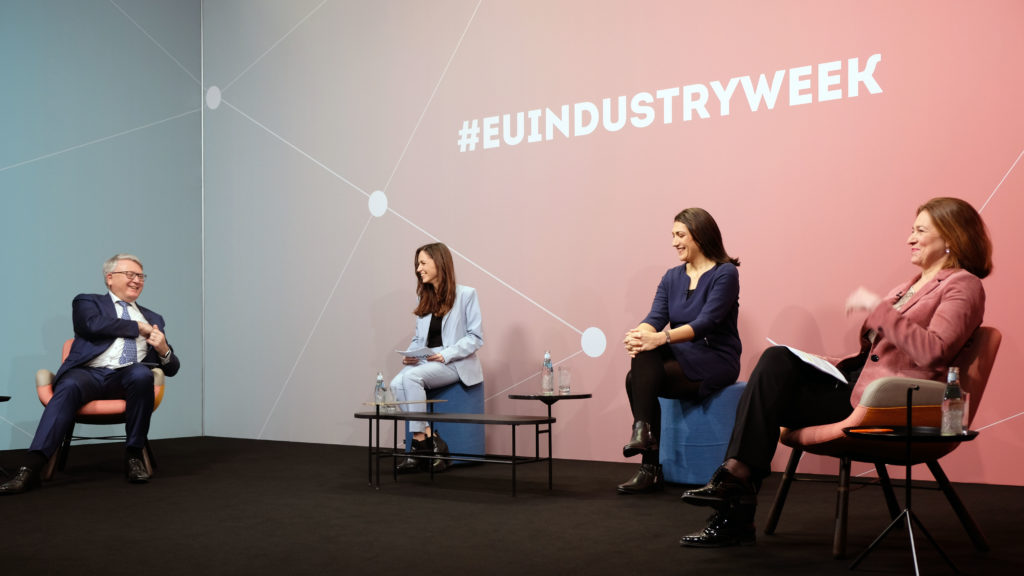
…Driven by data,
Day 2 of FEDIL Industry Days 2021 started with a keynote speech on Industrial policy in the digital era by the Minister of the Economy, Mr Franz Fayot. It was about growth prospects for Luxembourg companies across strategic sectors.
The Minister described Luxembourg’s digital future as « one in which digital data, technologies and platforms will transform ALL key sectors of our economy », where « digitalization and connectivity will underpin the green transition of our economy » and « accelerate the emerging circular economy ».
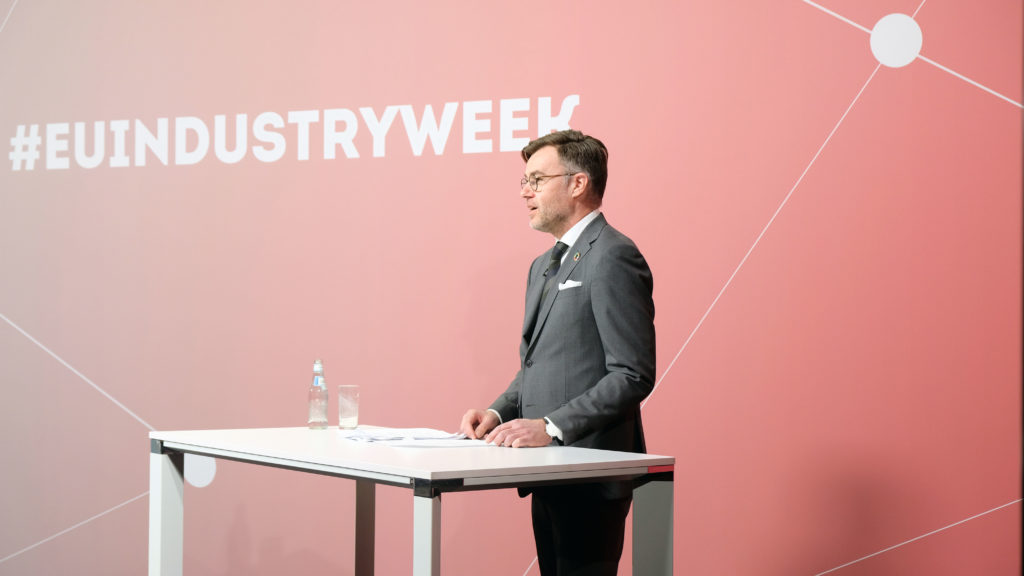
The vision of the Ministry of the Economy includes…
…a reworked strategy exploring current global Megatrends…
..and specific measures to better anticipate future challenges and take advantage of future opportunities still lying in the potential of industry 4.0, cleantech, health tech, logistics, space and financial technologies.
The strategy presented at FEDIL Industry Days was built on six pillars to restart the national economy and foster growth with a particular focus on SMEs:
- Accelerating the societal benefits of the digital economy…
- Driving the digitally enabled circular economy…
- Developing resilient strategic value chains.
As well as enabling…
- a secure and trusted data economy…
- a sustainable digital transition…
- a supportive investment environment to achieve competitive sustainability.
In a panel discussion moderated by FEDIL’s Head of Industrial Affairs, Dr Gaston Trauffler, FEDIL put the data economy on the spot. To showcase the power and impact of data on our economy and society, the industry’s digital transition was illustrated by Stugalux and B-Medical Systems’ company profiles.
Sasha Baillie, CEO of Luxinnovation, explained that while large Luxembourg companies counted among European frontrunners in adopting digital technologies such as big data, robotics and AI, most SMEs chose a more incremental digital transition. Here, Luxinnovation helped to accelerate the company’s undertakings.
One of these European digital frontrunners, represented by Mr Georges Rassel, CEO of Paul Wurth, explained how important it was, for a company with deep roots in the traditional manufacturing industry of steelmaking, to invest in technologies such as machine learning and live data analytics. While it seemed far out of their core business, Paul Wurth envisioned future challenges and recognized the need to adapt to technology change constantly. Mr Rassel pointed out that the steel and manufacturing industry’s digitalization became inevitable. From the design of a production plant to its daily operation, digitalization allowed higher predictability and control of workload-, quality- and maintenance management aspects. It also contributed to employees’ health and safety. All those aspects lead to better cost-efficiency and allowed to offer new services to customers.
Lucilla Sioli, Director AI and Digital Industry at DG CONNECT, European Commission, observed two contrasting trends. On the one hand, some companies took advantage of digitization even before the start of the COVID-19 pandemic. On the other hand, there were companies that needed to cut investment due to the pandemic, and they often had to do it in their digitization projects. This may further accentuate the discrepancies of adopting digitalization between companies, particularly between large enterprises and SMEs. However, there were also variations of digitalization within the SME community.
Nevertheless, Mrs Sioli believed that digitalization will help companies recover more rapidly from the downsides of the crisis. The Digital Single Market should further allow SMEs to grow beyond the Single Market. She mentioned the Digital Innovation Hubs initiative as a central tool to support the digitalization of SMEs.
For the future, Mr Rassel saw potential in building almost entirely autonomously operating steel plants. However, the essential challenges remained in the management of data sharing. He outlined the difficulties in extracting valuable information from the massive amounts of collected data, the complexities in understanding, translating, and making use of it were still considerable. Mrs Baillie confirmed that the main challenge consists of getting access to data and valorizing it in ways to serve for enhanced customer relationship management and the development of new business models.
Focusing on the value of data and the idea of data as the new oil of the future, Mrs Sioli highlighted an important point. Unlike for oil, data’s value was not generated from its mere extraction but rather from its sharing.
Data generated by machines can especially represent a powerful fuel for the recovery of the EU if used in a secure and trusted way. Mrs Sioli explained that the main challenges were of technical nature – in terms of infrastructure to host data securely, and to make it interoperable – and of legal nature including questions about data ownership.
She further described how the EU intends to increase hosting capacities of data infrastructures and clarifies rules applied to non-personal data. She mentioned, for example, the European Cloud Federation. Indeed, Minister Fayot explained in his keynote speech that Luxembourg was preparing its participation in a forthcoming European Federated Cloud and the Important Project of Common European Interest on Cloud Infrastructure and Services by realizing a « Luxembourg open and secure cloud ». For instance, this national cloud will be in line with the industry-driven Gaia-X and the European initiatives regarding interoperability and trust.
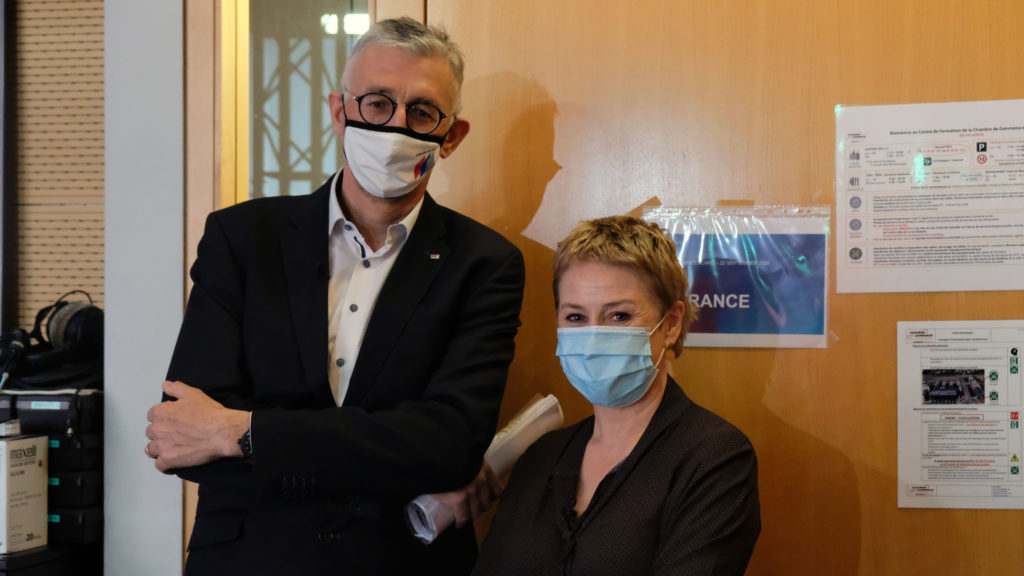
…Reinforced by trust.
According to the Prime Minister at FEDIL Industry Days, “cybersecurity is a dangerous weapon. It attacks data and can thereby block entire companies and the public service from functioning. Today, we ought to understand that everyone is part of cybersecurity!”
Luxembourg has adopted a cybersecurity strategy, and a sneak peek of the national cybersecurity strategy IV was presented by Mr Frank Lieser from the High Commissariat for National Protection.
Still, newspapers constantly report on new forms of cyberattacks and, despite precautions, our digital footprint, our growing use of digital tools and the global digitization of our economy make cybercrimes a daily reality.
In her opening remarks, our Chairwoman, Michèle Detaille, called for a common effort to raise awareness and inform companies and their employees about the risks associated with cyberattacks. Indeed, we are all part of the prevention.
In her moderation, Céline Tarraube, Adviser Digital and Innovation made clear that “cybersecurity is fundamental in building trust in our digital infrastructures, and for safety considerations of our digital lives. We should not underestimate the capabilities of the attackers to threaten our security and our freedoms. We must acknowledge that the pace and complexity of attacks are growing”.
However, it can be difficult to grasp the full extent of the impacts of a cyberattack. Thus, the objective of the last sequence of FEDIL Industry Days was to bring a pragmatic view to the audience by offering hands-on experience and testimonies.
“The digitization process is like the Echternach dance: two steps forward and one step backward”, Mr Paul Feider, CFO, Félix Giorgetti.
“In early January 2020, we were the victim of a ransomware-type cyberattack. The intruder encrypted our computer data. All the companies belonging to our group were affected. To make the files accessible again, the intruder demanded payment of a ransom of half a million dollars in bitcoin. He left us four days to do this. Otherwise, the amount doubled, and he threatened to sell and publish our data on the darknet.
The shock was huge when we realized that the intruder had also attacked our backups. Together with the Police, the CIRCL, and a whole army of external service providers, we rebuilt a new computer system using data collected from the cloud. We had to avoid any rush as well as any internet connection to internal servers.
More than a year after the attack, the process of restoring our networks is still not fully completed …”“Trust: you take years to build it and in one second, it is gone like that”, Mrs Edith Magyarics, CEO, VictorBuckServices.
“On a Monday morning, 5:30 a.m. you have a call from your IT team members, and they tell you they cannot access any system. Immediately, you need to take some decisions: cut all external accesses, don’t panic and call up a crisis management team.
The first day everything is boiling, and you just wonder ‘does the company still exist?!’. You need to embark everybody, make sure you get back on track and your activities can restart because your clients are counting on you. While the only available thing are phone calls, you need to communicate with your clients and colleagues.
Emotionally it is hard, you don’t sleep a lot, you need to keep quiet, you need to make sure you communicate properly and that you don’t start to blame culture, you need to find out what happened, rebuilding the systems and put all the measures in place to avoid recurrencies.
The majority of people don’t think it could happen, until it happens to them. So, you need good policies and people to understand why those policies are there. You can have a lot of prevention measures in place, but this is not enough, you also need the right detection.”
Further, FEDIL invited renowned experts to share some advices on how to behave before, during and in the aftermaths of a cyberattack.
“Better safe than sorry” – Cédric Mauny, Cybersecurity Lead at Telindus Luxembourg explained that the survival of a company, victim of a cyberattack, largely depends on the measures that have been put in place before the incident. Companies must always be vigilant and make sure, amongst others, to
- have detection measures;
- regularly update their systems, networks, software and antiviruses;
- know their most sensitive data and files;
- have and test their back-ups;
- limit user rights and adequate access control;
- have strong crisis management procedures.
In addition to this, communication is key, and Christophe Bianco, Managing Partner at Excellium Services added an important aspect in this regard: “as for victims of flood or fires, we need a general, social acceptance of cyberincidents. Experiencing an incident is not a shame. Companies should know they can share their experiences and talk about the causes. Otherwise, we will never be prepared.”
“After the attack is before the attack” – Pascal Steichen, CEO of Security made in Luxembourg, recalled that the first hour is critical to get organized, coordinate the teams and prepare well for the actions that follow. The lessons learned phase is crucial and will allow for a better understanding of what happened in order to effectively prepare for or even avoid any future attack.
In terms of preventive and protective measures, Maître Astrid Wagner, Partner at Arendt&Medernach and Mr Philippe, CFO at Foyer Assurances, introduced the advantages of a cyberinsurance for businesses:
- it covers the risk of a cyberattack on a company’s data and computer systems, whether due to malicious intent or negligence;
- it provides access to assistance and to a panel of technical, legal and communication specialists;
- it offers a due diligence process, whereby the company can start its own risk assessment;
- it offers a certain compensation, e.g. covers losses due to the restoration of data and computer systems or the shutdown of activities. However, it cannot pay the ransom or fines related to a noncompliance with personal data protection rules.
To conclude, Mr Bonte noted that only very few companies use the offer of a cyberinsurance and Me Wagner called for an improved awareness of the risks at the board level of companies as too little budget still seems to be allocated to cybersecurity.
Looking forward…
…we should build on the Single Market as our greatest asset…
FEDIL strongly defends the social and economic benefits of the integration in the Single Market as it brings about jobs, opportunities and prosperity. It is one of the EU’s greatest achievements. Plus, EU competition and state aid rules guarantee the functioning of the Single Market and combat distortions within it.
Almost thirty years later, as part of our fundamental rights, the freedoms of movement have become so profoundly part of our lives. Yet, the current pandemic has put our Single Market under pressure like never before and fragmentation actually risks seriously harming the EU’s competitiveness and further, the general wellbeing of its citizens and companies. Hence, it is crucial to rapidly restore the freedoms of movement to pre-crisis conditions and for Member States to consistently break down barriers to enable people, workers, goods, services, capital and data to move freely across borders.
However, to support industry and companies from all sizes and sectors, we must now go further and find solutions as regards cross-border research, digitisation, energy supply, labour mobility and the provision of services. Also, we must now better take account of the global market environment and dynamics.
…we should grow through the twin transition…
While the green and digital transition call for higher investment efforts, public funding alone will not be enough…
- More IPCEI’s 5 for large research and innovation projects could encourage both public and private investments.
- The future sustainable finance agenda must also channel investments towards the green transition, contributing to the EU’s sustainability goals.
- Investments in research and development in the areas of 6G and cybersecurity should not be neglected.
- Data access and sharing is key. In this context, we support the Gaia-X and EU Cloud Federation initiatives, which should not duplicate their activities complementary to each other.
- The development and use of AI solutions must be encouraged through risk-based regulation, putting trust, safety and European values first.
- The number of STEM graduates and especially of female participation, needs to increase.
- We should grow through the multilateral framework and with an ambitious EU trade agenda that puts the digital and green transition at its centre.
To conclude, we would like to thank all participants and guest speakers for their contributions. We would also like to thank the European Commission for the opportunity to host a local event and, not least, FOYER Assurances as well as BGL BNP Paribas for their generous support. Altogether, and with an excellent broadcasting team, FEDIL Industry Days 2021 have been a great success.
